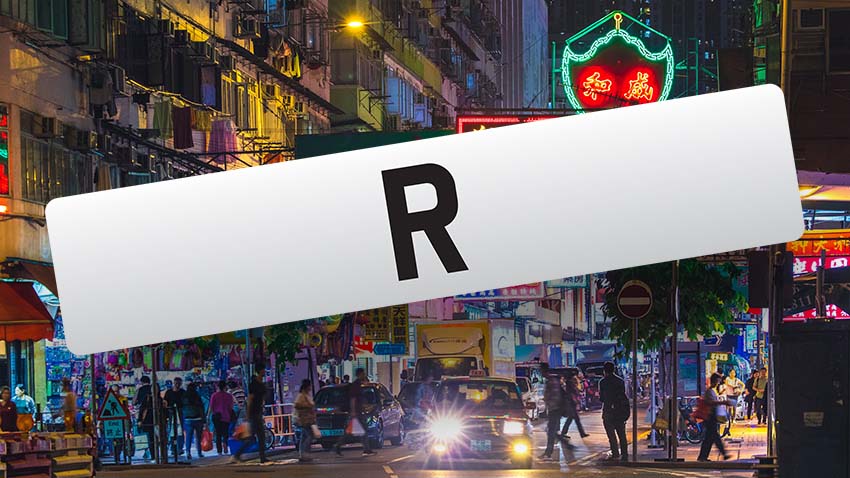
We weren't unduly surprised when we heard about the sale of the registration plate "R" at auction in Hong Kong, even though the hammer went down at an eye-watering HK$ 25.5 million (approximately £2,632,000). Private plate auctions in affluent parts of Asia have dominated our rankings of the world's most expensive private number plates for quite a while. In fact, at the time of writing, the top 20 most expensive registrations were all sold in Asia, except for one notable Australian entry. The plate-loving, wealthy residents of Dubai, Abu Dhabi and Hong Kong will take some beating.
Supernatural super plates
Of the very expensive registrations sold in Asia, those sold in Hong Kong, and in other places with cultural traditions of Chinese origin, are particularly interesting. It seems that one motivation for those big-ticket registration purchasers is the supposed connection between certain numbers and letters and good fortune. Supernatural divination methods are extraordinarily popular in the UK, Europe and the USA, where horoscopes, psychic readings and more form part of a huge market for all things paranormal. In places like Hong Kong, however, that market is so much more complex that even car number plates become relevant.
The price paid for R in Hong Kong has been attributed in the press to the letter's supposed relevance to motor racing, and to positive connotations in Chinese fortune-telling. Neither of these apparently speculative reasons has been explained in any depth. Some plates that attract high bids are those containing numbers that are notable in Chinese numerology for their link to good fortune. The thing that can take a while for westerners to grasp is that the digits themselves aren't considered lucky (or unlucky) because of any innate property of their own but because they sound like auspicious words when spoken aloud.
Lucky numbers
Perhaps the best-known lucky Chinese number is eight. When spoken in Chinese, eight (pronounced "ba") sounds similar to the word "fa", which means to prosper or acquire wealth. Other numbers have significance due to their being close homophones to other favourable words. Thus the number two is associated with harmony and the doubling of good things, the number three with stability, six with smoothness and good luck, and nine with longevity. The number four, on the other hand, is a kind of Chinese equivalent to the dreaded 13 in western superstition. Four is considered unlucky as, when spoken in Chinese, it sounds like the word for death.
Most digits have more than one associated meaning and they can be combined to get the benefit of several meanings. The number 28, for example, can imply the doubling of wealth or it can mean wealth and harmony. No doubt that goes some way to explaining why someone in Hong Kong paid HK$ 18.1 million for 28 on a number plate in 2016.
The mystery
The competition for private plates with just individual letters, however, is rather less easy to explain. The news reports about the "R" registration say that it was a lucky letter in Chinese fortune telling but no one we know, including our in-house Chinese culture expert, knows what that's supposed to mean. The closest we can discover is that letters in the Roman alphabet used in English do have significance in Chinese astrology. It's not as simple as declaring that certain letters are lucky or unlucky: there is a complex relationship between the letters in a person's name, the year and month of a person's birth, associated elements such as metal, fire, water, wood etc, their zodiac animal, and various other factors. Like western astrology, it is a hugely complicated business and we admit that we have not been able to extract a simple explanation for "R" commanding such a huge price. It's no wonder the details in newspaper reports were so vague.
Of course, all that aside, there's always the possibility that "R" was really bought because it is someone's initial…
Do you have a lucky number or letter? Search now for your very own good fortune on a plate.
